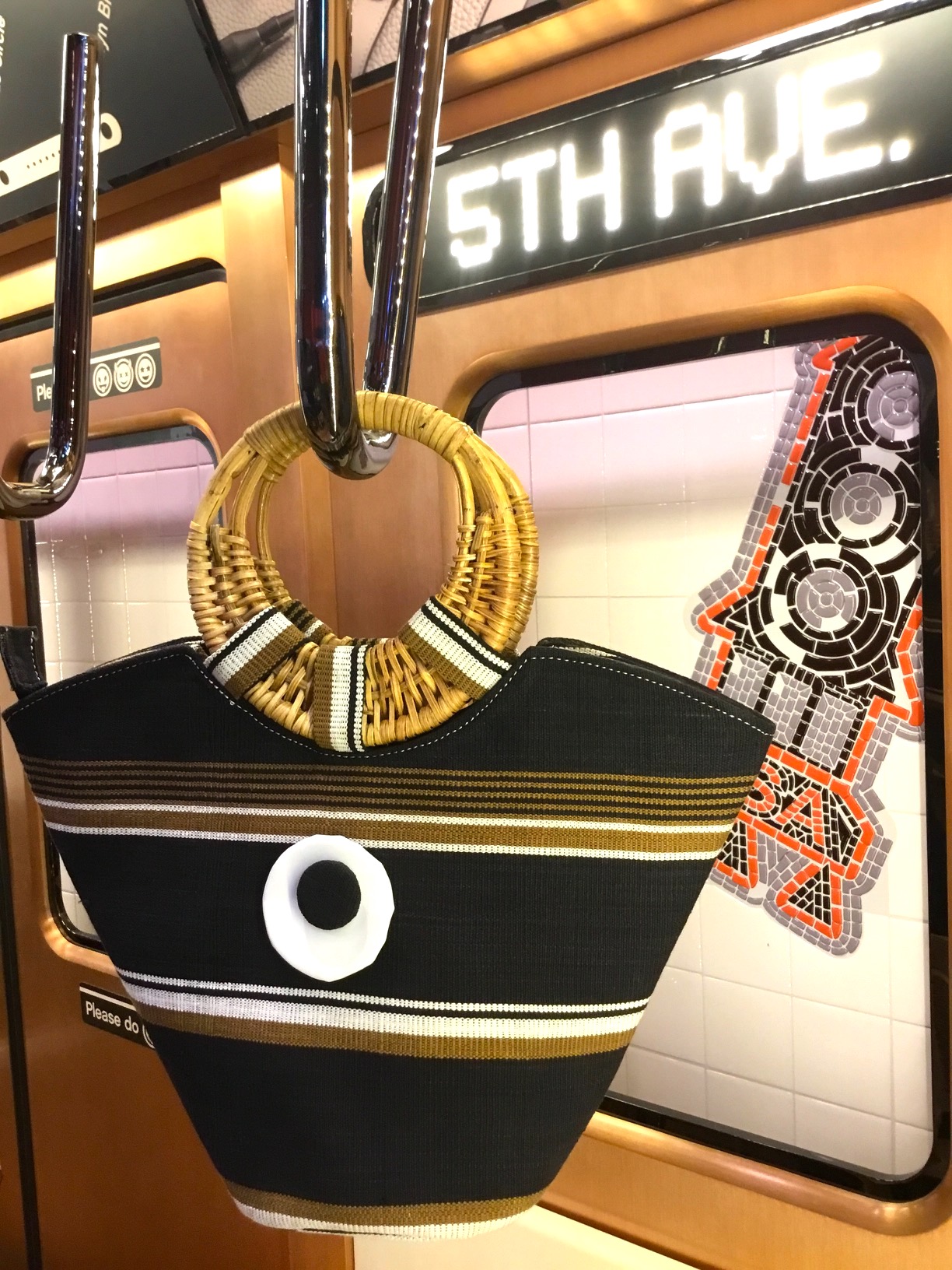
by Jonathan Vatner
Recently, a participant in the Brooklyn Fashion Incubator was importing durable textiles from Burkina Faso to sell to designers for jackets or home furnishings. Executive director Maria Barraza, Fashion Buying and Merchandising ’77, advised him to try the fabric in handbags, then suggested improvements to the hardware to make the bags more appealing to American consumers. He received a wholesale order shortly afterward.
Another participant had designed an elegant infinity shawl, but the factory couldn’t get the edging detail to roll properly. Barraza helped get her money back. A third participant hand-crocheted clothes for newborns; Barraza helped her elevate the product’s perceived value by improving the hangtags and labels, with a simple but sophisticated design, heavier card stock, and a string attachment.

These are just a few of the ways Barraza has assisted emerging designers through the Brooklyn Fashion Incubator (BFI), a nonprofit she and her husband, partnerships director Rafael Romero, founded in 2016. Barraza helps four or five designers at a time refine their product, manufacture their lines, work with buyers, and execute marketing campaigns. The couple developed a remote program in 2017 for those living outside of the New York area.
“We help them very strategically, really honing in on what they need for their business,” Barraza says. “We’re the only incubator that takes the time to focus individually instead of using a broad brush.”

The incubator was birthed through a partnership with Macy’s, which had funded similar programs in Chicago, San Francisco, and Philadelphia. Barraza had worked with Macy’s over many years; her company, Barraza Associates Ltd., designed and manufactured private label merchandise for a who’s who of department stores and catalogs. Barraza now designs special occasion dresses and separates, particularly for the mother of the bride or groom, sold at her shop in Stonington, Connecticut. Her customers have included Soledad O’Brien, Tipper Gore, Elizabeth Vargas, and Congresswoman Nydia Velázquez. She also produces a line of silk separates and another of organic cotton yoga and spa wear, sold through her boutique and others nationwide.
Though Macy’s no longer sponsors the Brooklyn Fashion Incubator, Barraza and Romero have continued to find new sponsors and grow the nonprofit. They have reserved space in the Made in NY development project, a fashion hub opening in Sunset Park, Brooklyn, in late 2021. In this larger footprint, they will be able to host twice as many emerging designers, who will have access to Made in NY’s ecosystem of cutting rooms, small-run factories, and suppliers.
The BFI is also planning an event tentatively scheduled for this spring that will connect designers with exceptional suppliers around the world. To maximize efficiency—and to maintain COVID-19-era distancing, they are setting up one-on-one meetings, both in-person and online, in advance.
“There are all sorts of creative ways we’re able to help designers navigate the complicated waters of this industry,” Barraza says.
Featured Photo (top): A BFI Fashion Show at the New York Hilton Hotel. Photos courtesy of BFI